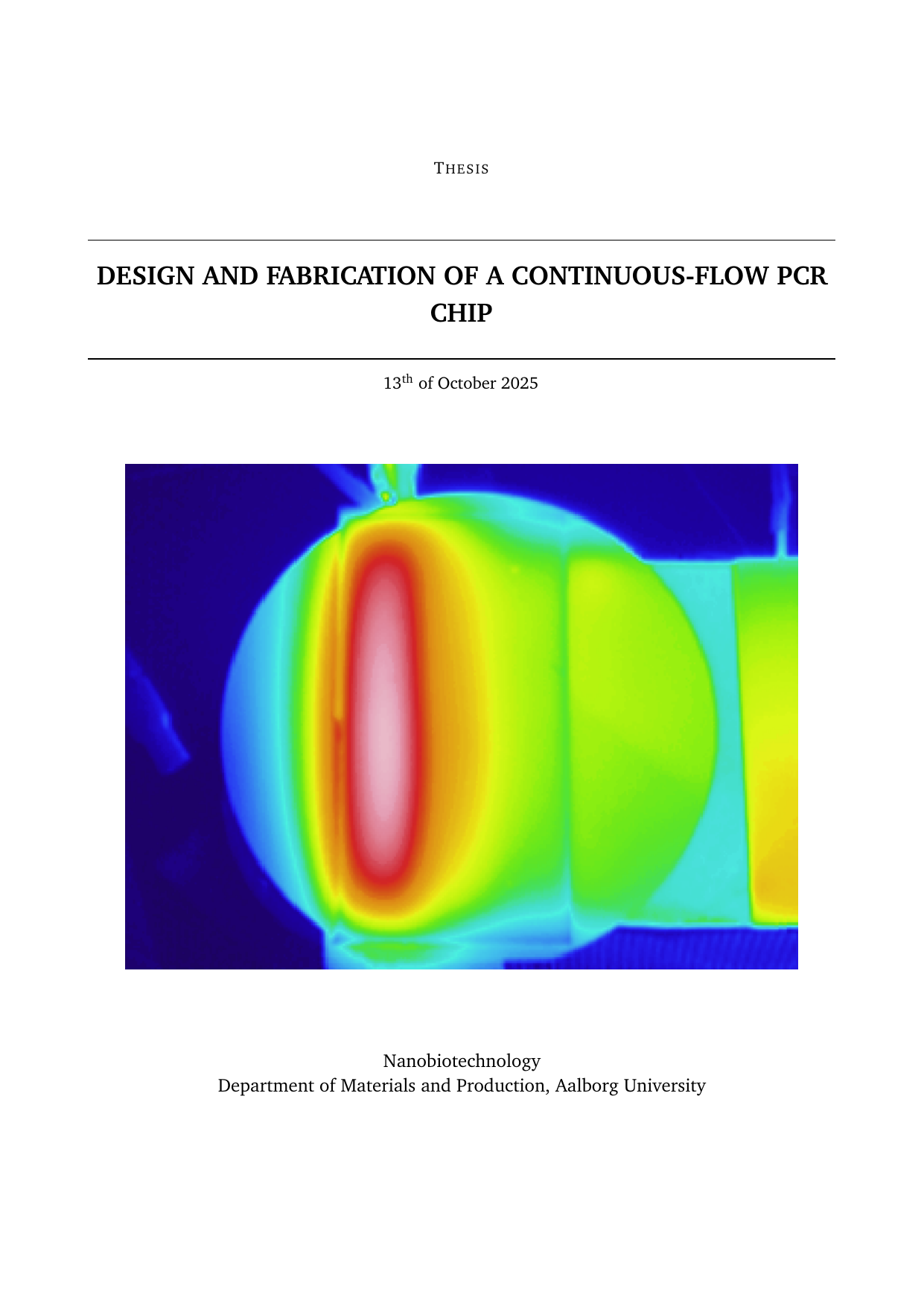
DESIGN AND FABRICATION OF A CONTINUOUS-FLOW PCR CHIP
Term
4. semester
Education
Publication year
2025
Submitted on
2025-10-13
Pages
73
Abstract
A continuous-flow microfluidic PCR chip is examined in this paper for the potential of enabling rapid generation of mutant DNA libraries. Traditional PCR methods, while foundational in molecular biology, are limited by lengthy thermal cycling times and expensive automation. Microfluidic PCR chips offer a promising alternative to achieve rapid thermal cycling and reduced reaction times. This project focuses on the design, fabrication, and optimization of a serpentine, continuous-flow PCR chip, using a resistive heater and a Peltier element to define the denaturation and annealing zones, respectively, and leveraging the in-between gradient to form the extension zone. The chip design was modeled using COMSOL Multiphysics Software. Molds of the chips were fabricated using photolithography and deep reactive ion etching (DRIE), followed by polydimethylsiloxane (PDMS) casting and bonding to a glass substrate using plasma bonding. The chip’s thermal performance was evaluated using infrared imaging, and PCR was tested with various primer sets. Bovine serum albumin (BSA) was utilized to passivate the surface of the microchannels, limiting inhibition of Taq polymerase. The results highlight PDMS delamination, unspecific primer annealing, and inhibition of PCR reagents as significant challenges to overcome.
Keywords
PCR ; Microfluidics ; Chip ; Etching ; Lithography ; Comsol ; Simulering
Documents
